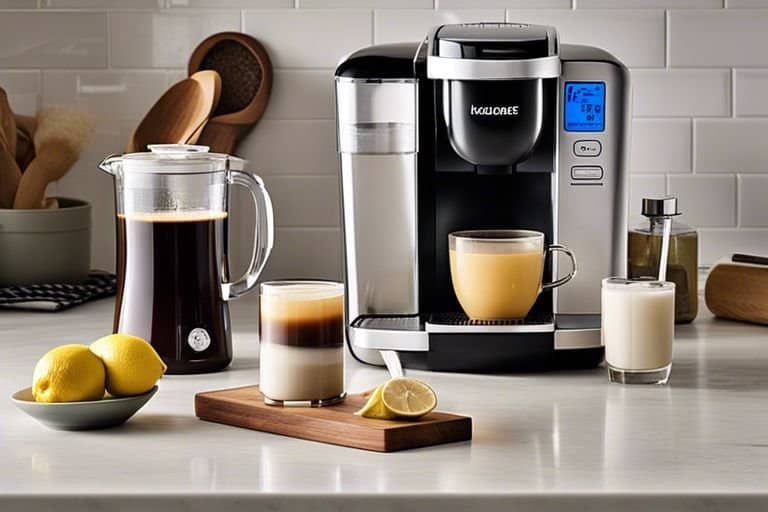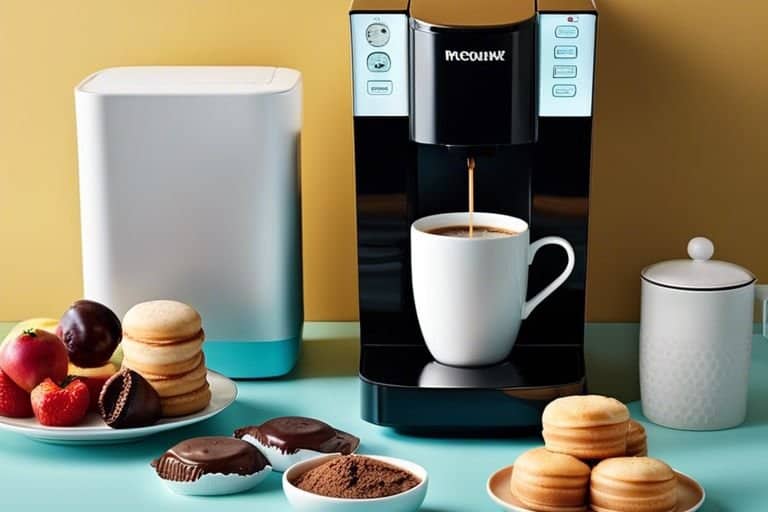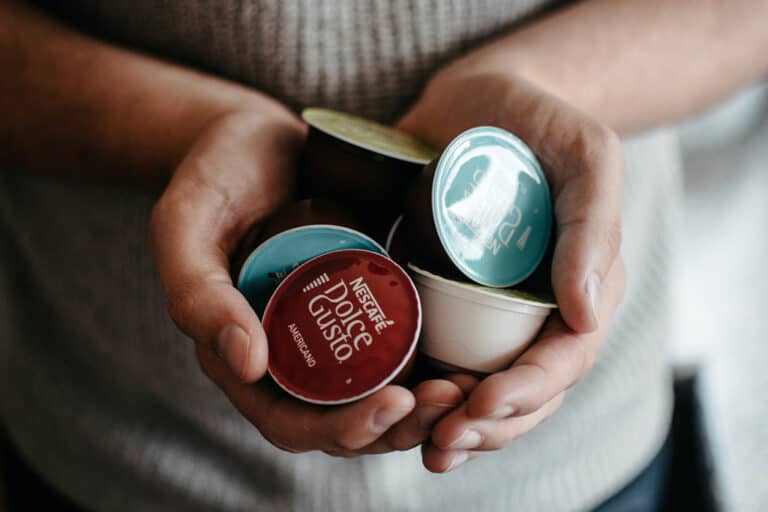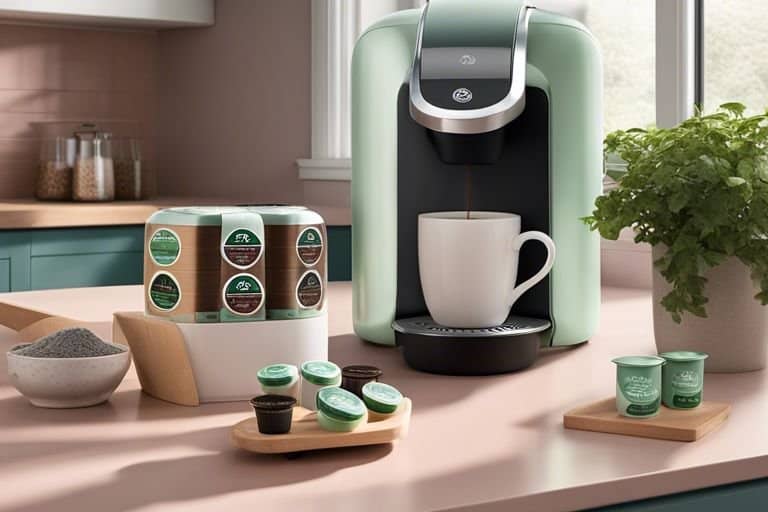Are K-Cup Coffee Makers Eco-Friendly? Exploring the Environmental Impact

Percolating through the debate of single-use coffee pods is the question of whether K-Cup coffee makers are truly eco-friendly. With their convenience and wide range of flavors, K-Cup coffee makers have become a staple in many households. However, their impact on the environment is a hot topic of discussion. In this blog post, I will delve into the harmful effects of K-Cup coffee makers and the positive steps that can be taken to minimize their environmental impact. From the production of the pods to their disposal, it’s important to understand the full scope of their environmental footprint.
K-Cup Composition and Lifecycle
Your morning routine may include brewing a cup of coffee using a K-Cup coffee maker. While convenient, have you ever stopped to consider the environmental impact of those K-Cups? In this chapter, I will explore the composition and lifecycle of K-Cup pods to shed light on their eco-friendliness.
Materials Used in K-Cup Pods
K-Cup pods are typically made of a combination of plastic, aluminum, and paper. This combination of materials makes K-Cups difficult to recycle, as the components need to be separated before they can be processed. Furthermore, many K-Cup pods also contain a plastic mesh filter and a small amount of coffee grounds, further complicating the recycling process. The use of plastic in K-Cups is particularly concerning, as plastic pollution is a major environmental issue.

The Lifecycle of a Single K-Cup
Once a K-Cup pod is used, it becomes a disposable item that adds to the waste stream. The plastic, aluminum, and paper components of the pod take a significant amount of time to break down in landfills, contributing to long-term environmental pollution. When considering the entire lifecycle of a single K-Cup, from production to disposal, it becomes clear that these convenient coffee pods have a substantial environmental impact.
Environmental Impact of K-Cup Usage
Clearly, the convenience of single-serve coffee makers like K-Cups has made them a popular choice for many coffee lovers. However, the environmental impact of their usage is a cause for concern. In this section, I will delve into the challenges posed by K-Cup waste accumulation and the carbon footprint of these coffee makers.
Waste Accumulation Challenges
One of the most pressing environmental issues associated with K-Cup coffee makers is the accumulation of plastic waste. The small size and complex composition of K-Cups make them difficult to recycle, leading to a significant amount of plastic ending up in landfills. This not only contributes to the pollution of our environment but also poses a threat to wildlife. Additionally, the production of K-Cups consumes vast amounts of resources, further exacerbating the waste accumulation challenges.
Carbon Footprint of K-Cup Coffee Makers
When it comes to the carbon footprint, K-Cup coffee makers are also a cause for concern. The manufacturing and distribution of K-Cups require substantial energy and resources, leading to increased carbon emissions. Furthermore, the individual packaging of coffee in K-Cups results in a higher carbon footprint compared to traditional brewing methods. This high level of carbon emissions contributes to the overall environmental impact of K-Cup coffee makers.
Solutions and Alternatives
However, it’s important to highlight that there are eco-friendly options available when it comes to K-Cup coffee makers. By exploring biodegradable and recyclable K-Cups, we can make more sustainable choices as consumers. For more information on this topic, you can check out Eco-Friendly Options – Discussing Biodegradable and Recyclable K-Cups.
Recyclability and Biodegradable Options
When it comes to recyclability and biodegradable options, it’s important to be mindful of the environmental impact of K-Cup coffee pods. While some K-Cup pods are made from recyclable materials, not all regions have the infrastructure to properly recycle them. Additionally, many K-Cup pods end up in landfills, contributing to environmental pollution. There are, however, biodegradable K-Cup options available, which can help reduce the environmental impact of single-use coffee pods.

Making Sustainable Choices as a Consumer
As consumers, we have the power to make sustainable choices when it comes to our coffee habits. Opting for reusable K-Cup pods is one way to reduce the environmental impact of single-use pods. Additionally, choosing coffee brands that use sustainable and ethical practices in their production can make a positive difference. By being mindful of our choices, we can minimize the negative environmental effects of K-Cup coffee makers.
Industry Responses and Innovations
Lastly, it is important to consider how the coffee industry as a whole has responded to the environmental concerns surrounding single-serve coffee makers. As the demand for more sustainable options grows, many manufacturers have started taking steps to reduce the environmental impact of their products. This has led to a number of innovations and future trends in the industry.
Efforts by K-Cup Manufacturers
Some K-Cup manufacturers have recognized the need to address the environmental impact of their products. They have made efforts to produce recyclable or biodegradable K-Cups, reducing the amount of plastic waste that ends up in landfills. Additionally, some companies have also implemented efforts to source coffee beans from sustainable and ethical producers. These initiatives are a step in the right direction towards making single-serve coffee more environmentally friendly.
Future Trends in Eco-Friendly Single-Serve Coffee
Looking ahead, there are promising future trends in the development of eco-friendly single-serve coffee options. Manufacturers are investing in research and development to create more sustainable packaging materials, such as compostable or reusable K-Cups. There is also a growing trend towards the use of organic and fair trade coffee beans, which not only benefits the environment but also ensures better working conditions for coffee farmers. These future trends show a positive shift towards more environmentally responsible practices within the industry.
Are K-Cup Coffee Makers Eco-Friendly? Exploring the Environmental Impact
Conclusively, after researching the environmental impact of K-Cup coffee makers, I have found that they are not the most eco-friendly option. The single-use plastic pods create a significant amount of waste that often ends up in landfills, and the energy required to produce and dispose of them adds to their environmental impact. While there are more sustainable alternatives, such as reusable pods or traditional brewing methods, it is important to be mindful of the environmental impact of our coffee consumption and make choices that are more sustainable.





